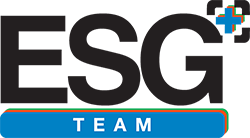WHAT IS A PEO?
Any business can find value in PEO relationship. An average client of PEO is a business with 10 worksite employees. Increasingly. larger businesses also are finding value in a PEO arrangement. because PEOs offer robust web-based HR technologies and expertise in HR management. PEO's can partner with companies that have 500 or more employees and work in conjunction with their existing human resources department. PEO clients include many different types of businesses ranging from accounting firms to high-tech companies and small manufacturers. Many different types of professionals including doctors, retailers, mechanics, engineers and plumbers also benefit from PEO services.
Business owners want to focus their time and energy on the "business of their business" and not on the "business of employment". As businesses grow most owners do not have necessary human resources training: payroll and accounting skills the knowledge of regulatory compliance or the backgrounds in risk management insurance and employee benefit programs to meet the demands of being an employer. PEO's give small-group markets access to many benefits and employment amenities they would not have otherwise.
No. The client retains ownership of the company and control over its operations. As co-employers the PEO and client will contractually share or allocate employer responsibilities and liabilities. The PEO will generally only assume responsibilities and liabilities associated with a "general" employer for purposes of administration, payroll, taxes and benefits. The client will continue to have responsibility for worksite safety and compliance. The PEO will be responsible far workers' compensation as well as focusing on and improving safety and compliance. In general terms the PEO will focus on employment-related issues and the client will be responsible for the actual business operations.
The PEOs economy of scale enables each client company to lower employment costs and increase the business bottom line. The client can maintain a simple in-house HR infrastructure or none at all by relying on the PEO. The client also can reduce hiring overhead. The professionals at the PEO can provide critical assistance with employer compliance which helps protect the client against liability. In many cases the client can pay a small up-front cost for a significant technology and service infrastructure or platform provided by the PEO. In addition, the PEO provides time-savings by handling routine and redundant tasks for its clients. This enables the business owner to focus on the company's core competency and grow its
bottom line.
Ready to find out how ESG Team can help
you succeed?
Optimize your workforce today! Contact Us now to get started!
